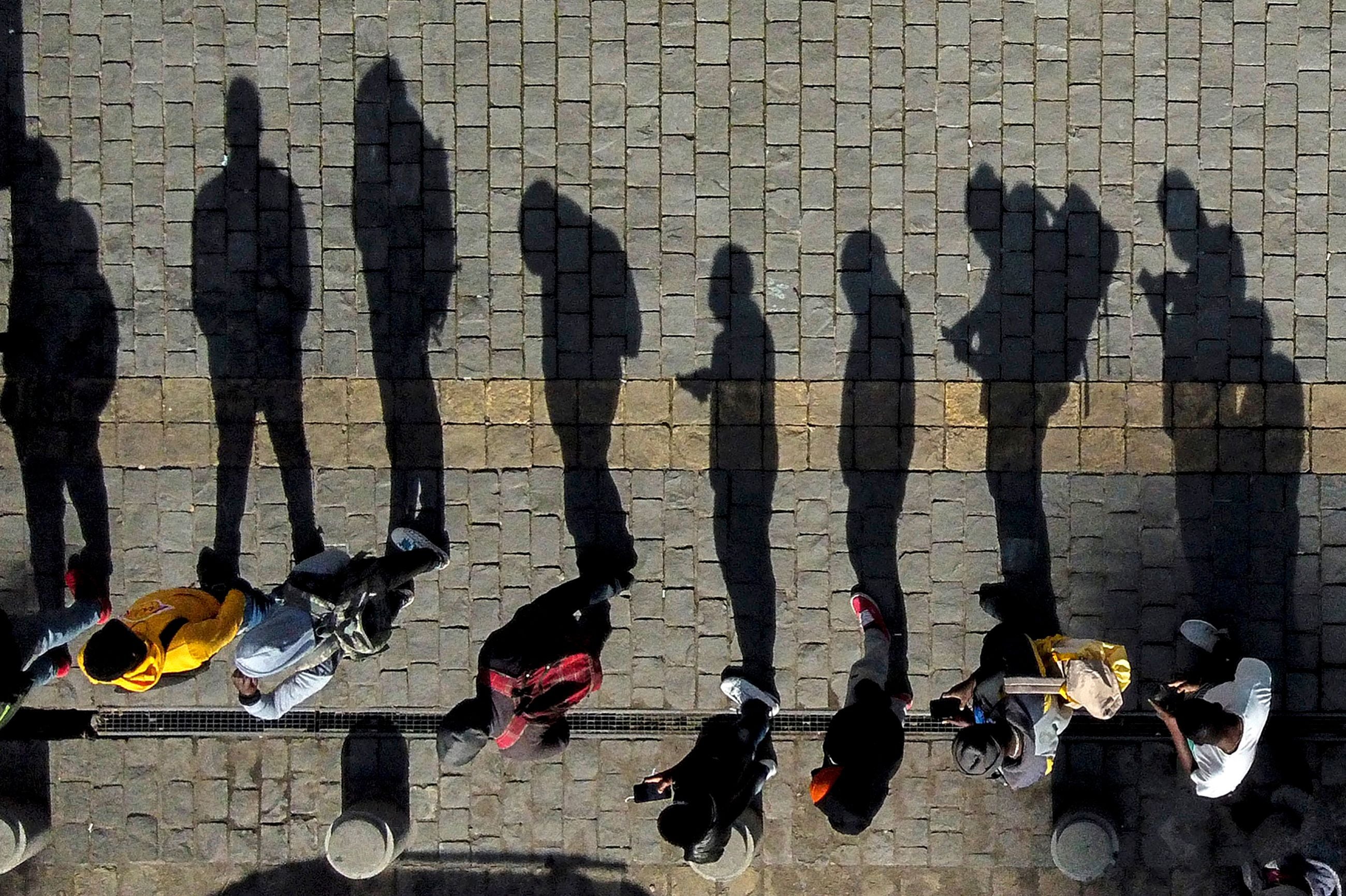Nearly $100bn has been stolen from US Covid relief funds meant for struggling businesses
About 900 criminal investigations are underway, and 100 people have been arrested so far

Your support helps us to tell the story
From reproductive rights to climate change to Big Tech, The Independent is on the ground when the story is developing. Whether it's investigating the financials of Elon Musk's pro-Trump PAC or producing our latest documentary, 'The A Word', which shines a light on the American women fighting for reproductive rights, we know how important it is to parse out the facts from the messaging.
At such a critical moment in US history, we need reporters on the ground. Your donation allows us to keep sending journalists to speak to both sides of the story.
The Independent is trusted by Americans across the entire political spectrum. And unlike many other quality news outlets, we choose not to lock Americans out of our reporting and analysis with paywalls. We believe quality journalism should be available to everyone, paid for by those who can afford it.
Your support makes all the difference.About $100bn (£75bn) has been stolen from the Covid-19 relief funds that were set up by the US government to help struggling businesses and those who lost their jobs due to the pandemic, the Secret Service has said.
The federal law enforcement agency said that it has seized more than $1.2bn so far while investigating unemployment insurance and loan fraud, and has managed to return more than $2.3bn of fraudulently obtained funds by reversing transactions. These investigations have led to the arrest of 100 individuals, it said.
The Secret Service branch specialises in financial fraud though it is more famously known for its role in presidential protection.
On Tuesday, the federal agency announced the appointment of assistant special agent in charge Roy Dotson as its new national pandemic fraud recovery coordinator. He will “coordinate efforts across multiple ongoing Secret Service investigations into the fraudulent use of Covid-19 relief applications”, the agency said in a statement.
“The Secret Service currently has more than 900 active criminal investigations into fraud specific to pandemic-related relief funds,” Mr Dotson said. “That’s a combination of pandemic benefits and all the other benefits programs too. Every state has been hit, some harder than others. The Secret Service is hitting the ground running, trying to recover everything we can, including funds stolen from both federal and state programs.”
About 3 per cent of the US government’s $3.4 trillion Covid relief package has been dispersed. But the amount stolen shows “the sheer size of the pot is enticing to the criminals”, Mr Dotson added.
The estimate was derived based on the data from the Labor Department, the Small Business Administration and Secret Service cases, he said. But they do not include Covid-19 fraud cases prosecuted by the Justice Department.
Last week, the Justice Department confirmed that its branch for fraud has prosecuted over 150 defendants in more than 95 criminal cases and seized over $75m in cash proceeds derived from fraudulently obtained Paycheck Protection Program funds, as well as numerous real estate properties and luxury items purchased with the proceeds.
Secret Services used to focus on fraud related to personal protective equipment in the early months of pandemic. But now they have prioritised the exploitation of pandemic-related relief as the package attracted more attention from criminal networks across the world.
“Can we stop fraud? Will we? No, but I think we can definitely prosecute those that need to be prosecuted and we can do our best to recover as much fraudulent pandemic funds that we can,” Mr Dotson added.
Additional reporting by agencies
Join our commenting forum
Join thought-provoking conversations, follow other Independent readers and see their replies
Comments